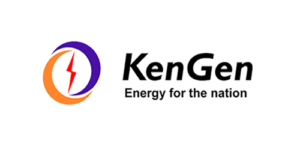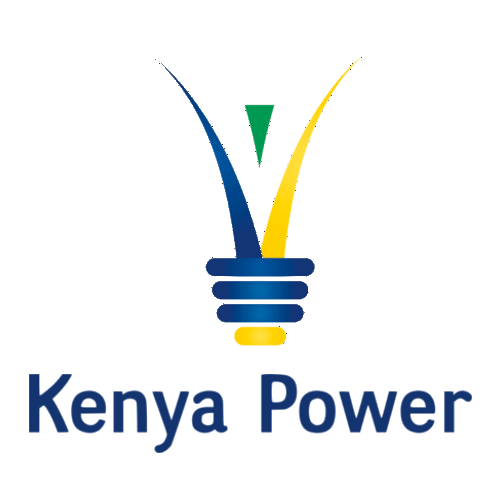Telecommunications giant; Safaricom is poised to earn 53.5 billion Kenyan Shillings for the installation of smart electricity meters for the large consumer base of Kenya Power and Lighting Company (KPLC) which is more commonly known as Kenya Power. The deal is expected to help limit the cases of leakages and power theft, while also solving the weaknesses on the transmission network for Kenya Power and Lighting Company (KPLC).

The telecommunications company; Safaricom is looking to put in place a 31 billion Kenyan Shilling smart system that will be able to connect a total of 330,300 electricity meters to a central location. The smart system will also be able to track and monitor power outages, use of electricity, remote read meters, and the load on transformers.
This will ensure that the portions of electricity bought from electricity generators like the Kenya Electricity Generating Company PLC (KenGen) that do not get to businesses and homes reduce from 23.93 percent to as low as 8 percent. Said portions are known as system losses and the reduction of their occurrence, will result in additional earnings for the Kenya Power and Lighting Company (KPLC) to the tune of 71 billion Kenyan Shillings over a period of eight (8) years.

According to the board papers of the Kenya Power and Lighting Company (KPLC) Safaricom could gain 75 percent of the additional sales. This will amount to 53 billion Kenyan Shillings while the Kenya Power and Lighting Company (KPLC) will earn 17.9 billion Kenyan Shillings.
What this means is that the telecommunications company; Safaricom, will be recovering its investment in four (4) years. It will then transfer operations of the smart reading network to the Kenya Power and Lighting Company (KPLC) after a period of eight (8) years.
The executives at Kenya Power and Lighting Company (KPLC) are however looking to have a review of the revenue share done as soon a final deal is agreed upon with Safaricom as they; the executives, feel that the current draft favours the telecommunications company.
The Kenya Power and Lighting Company (KPLC)’s General Manager for Business Strategy; Martin Mutuku made it known via a preliminary report that, “Safaricom will have recouped its full cost in year four hence the need for a further discussion on the revenue uplift sharing proportion.”
Martin Mutuku added that, “Basis to support the 75 to 25 percent sharing proportions — KPLC should negotiate for a better sharing proposal.”

The move by Safaricom is the telecommunications giant’s most recent foray into diversifying its revenue streams from more than just Short Message Services (SMS), payments, voice, and money transfers.
In 2014, Safaricom began installing a surveillance and communication system worth 14.9 billion Kenyan Shillings. The surveillance and communication system, is connected to police stations in order to assist in the combating of crime in Mombasa and the nation’s capital city; Nairobi.
The telecommunications company’s efforts to diversify its revenue sources include accelerating its data business to balance out the slower growth it experienced in mobile calls. The slower growth in mobile calls also led to it; Safaricom, turning to the provision of internet related services and M-Pesa services to properly fuel its future growth.
The smart meters will cater to electricity users who account for not less than 84 percent of the Kenya Power and Lighting Company (KPLC)’s sales, is the most recent attempt at significantly reducing the system losses that according to reports, remain considerably higher than the global benchmark which is about 15 percent.
The smart systems will be connected to all businesses and homes that utilize more than 200 kilowatt hours (kWhs) every month.

The board papers of the Kenya Power and Lighting Company (KPLC) stated that, “This solution is expected to result in a turnaround of Kenya Power’s current financial position by reducing energy losses.”
It also made it known that, “In addition, it will improve collection, increase business operational efficiency and enhance cost efficiency.”
In 2020 the Kenya Power and Lighting Company (KPLC) reached its first loss in 17 years.
Electricity thefts combined with numerous leakages from the transmission grid as a result of extended periods of under investment, have all played a part in putting the system losses above the initial target of 14.9 percent.
The lack of efficiency in the electricity flow system, occurs in substations, high voltage wires as well as low voltage lines that connect businesses and households.
All high voltage wires above 132 kilovolts are being managed by the Kenya Electricity Transmission Company. The lower voltage lines are managed by the Kenya Power and Lighting Company (KPLC).
Cases of electricity theft and meters getting tampered with have also negatively affected the Kenya Power and Lighting Company (KPLC) which is in addition, combating the vandalism of transformers and lines.
The system losses experienced an increase from 17.51 percent in 2015, to the current level of 23.93 percent. This increase occurred in direct correlation with the increase in the new connections over the same period.
Telecommunications company; Safaricom is reportedly using its high speed Internet connectivity and license as a network service provider as leverage to provide solutions to businesses at a fee.

Safaricom has already identified a total of four (4) manufacturers who will be providing smart meters to a total of 73,000 distribution transformers, 1,292 Kenya Power distribution feeders, along with 256,000 consumers with a monthly use of more than 200 kilowatts.
The entire installation process will be carried out in three (3) phases. The first phase will be areas which are close to Mombasa Road. This includes a target of 6,200 meters over a period of nine (9) months.
For the second phase a total of 330,300 smart meters will be connected to large power users who account for not less than 84 percent of the entire energy consumption. This will be completed over a period of two (2) years and operated for more than six (6) years.
The Kenya Power and Lighting Company (KPLC) will then proceed to continue the installations for the third and final phase, leveraging on and utilizing the infrastructure set up by Safaricom.
Kenya Power will continue installations for the final phase leveraging on infrastructure created by the telco.
How informative was this article? Are there any other news topics, categories, or How To topics, that you would like us to write on? Feel free to reach out to Mpesa Pay in the comment section.


